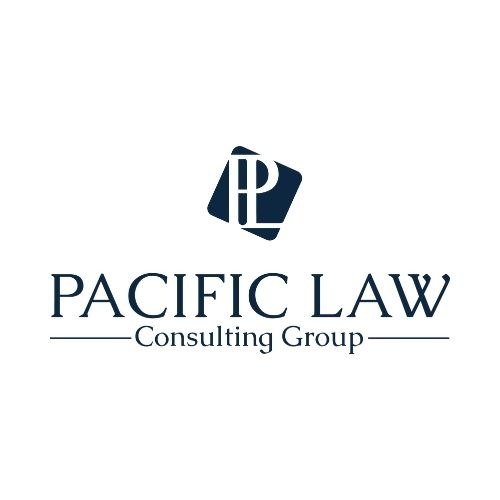Best Patent Lawyers in Peru
Share your needs with us, get contacted by law firms.
Free. Takes 2 min.
Or refine your search by selecting a city:
List of the best lawyers in Peru
About Patent Law in Peru
Patent law in Peru is governed by the Legislative Decree No. 1075 and other related regulations. The objective of the patent system is to encourage innovation and protect inventors' rights by granting them exclusive rights over their inventions for a specific period. In Peru, the National Institute for the Defense of Competition and the Protection of Intellectual Property (INDECOPI) is the authority responsible for the registration, granting, and management of patents. The system aims to ensure that new technological advancements are accessible to the public once the protection period expires, fostering a balance between the inventor's rights and public interest.
Why You May Need a Lawyer
Securing a patent in Peru can be a complex process, often requiring specialized legal knowledge. Here are some situations where a patent lawyer might be necessary:
- Application Process: To navigate the intricate steps involved in filing a patent, including drafting and submission, a lawyer can ensure accuracy and compliance with local laws.
- Patent Infringement: If someone is using your invention without permission, a lawyer can help enforce your rights and take appropriate legal actions.
- Disputes: In the case of disputes over patent ownership or challenges to the patent's validity, legal expertise is crucial.
- International Patents: If there is a need to protect your invention outside Peru, a lawyer can assist with international patent applications, ensuring adherence to global standards like the Patent Cooperation Treaty (PCT).
- Advisory Services: Lawyers provide strategic advice on patent asset management, licensing, and commercial exploitation of your patent rights.
Local Laws Overview
Peru's patent laws are structured to align with international standards, ensuring comprehensive protection for inventors. Key aspects include:
- Patentable Subject Matter: According to Peruvian law, inventions that are new, involve an inventive step, and are industrially applicable can be patented.
- Non-Patentable Subject Matter: Discoveries, scientific theories, mathematical methods, and processes for surgical or therapeutic treatment among others, are not patentable.
- Duration of Protection: Patents are granted for a period of 20 years from the filing date, subject to the payment of annual maintenance fees.
- Compulsory Licensing: Under certain conditions, such as lack of use of the patent, or in the presence of national interest, compulsory licenses may be issued to third parties.
- Opposition and Revocation: Third parties can oppose patent applications or request revocation of granted patents under specific grounds outlined by the law.
Frequently Asked Questions
What constitutes a patentable invention in Peru?
An invention must meet three criteria to be patentable in Peru: it should be new, involve an inventive step, and have industrial applicability.
How long does it take to get a patent in Peru?
The process can take several years, typically between two to five years, depending on the complexity of the patent and the thoroughness of the application.
Can I patent a software in Peru?
Software per se is not patentable in Peru. However, if the software is part of a technical invention that meets patentability criteria, it can be protected.
Is there a fast-track option for patent applications?
Yes, under certain conditions, such as demonstrating the significance of the invention to economic development, a fast-track examination can be requested.
What costs are involved in patenting in Peru?
Costs involve application and examination fees, maintenance fees, and any legal fees if using legal services. Additional costs can arise if complex technical documentation is required.
What is the validity period of a patent in Peru?
A patent is generally valid for 20 years from the filing date, subject to payment of annual maintenance fees.
Can patents be sold or transferred in Peru?
Yes, patents can be sold, licensed, or transferred, provided the transfer is registered with INDECOPI to ensure legal recognition.
What can I do if my patent is infringed in Peru?
You may initiate a legal proceeding for patent infringement, seeking remedies like damages or injunctions against the infringer.
What is the role of INDECOPI in patent protection?
INDECOPI is the Peruvian government body that manages patent applications, grants patents, and handles challenges or disputes related to intellectual property rights.
Can I file an international patent through INDECOPI?
While INDECOPI handles domestic applications, for international protection, you would typically file through treaties like the PCT, designating Peru as one of the member states.
Additional Resources
For further assistance on patents in Peru, consider the following resources:
- INDECOPI: The official body for intellectual property rights, offering comprehensive guides and resources for patent applicants.
- World Intellectual Property Organization (WIPO): Provides valuable resources and guidance on global patent protection mechanisms.
- Patent Lawyers and Firms: Local legal practitioners specializing in intellectual property law can provide personalized assistance.
- Chambers of Commerce: These organizations often provide seminars, workshops, and resources on IP management.
Next Steps
If you need legal assistance in patent matters in Peru, follow these steps:
- Identify your legal needs and gather all relevant documentation regarding your invention.
- Research and consult with patent attorneys or firms specializing in intellectual property to explore your options.
- Prepare to file your patent application with INDECOPI, seeking legal help if necessary to ensure compliance with all requirements.
- Respond promptly to INDECOPI communications and fulfill any additional demands or requirements.
- Consider international protections if your business operations extend beyond Peru, coordinating with your legal advisor for the best approach.
Seeking professional guidance early can help streamline the process and protect your valuable intellectual property rights effectively.
Lawzana helps you find the best lawyers and law firms in Peru through a curated and pre-screened list of qualified legal professionals. Our platform offers rankings and detailed profiles of attorneys and law firms, allowing you to compare based on practice areas, including Patent, experience, and client feedback.
Each profile includes a description of the firm's areas of practice, client reviews, team members and partners, year of establishment, spoken languages, office locations, contact information, social media presence, and any published articles or resources. Most firms on our platform speak English and are experienced in both local and international legal matters.
Get a quote from top-rated law firms in Peru — quickly, securely, and without unnecessary hassle.
Disclaimer:
The information provided on this page is for general informational purposes only and does not constitute legal advice. While we strive to ensure the accuracy and relevance of the content, legal information may change over time, and interpretations of the law can vary. You should always consult with a qualified legal professional for advice specific to your situation.
We disclaim all liability for actions taken or not taken based on the content of this page. If you believe any information is incorrect or outdated, please contact us, and we will review and update it where appropriate.
Browse patent law firms by city in Peru
Refine your search by selecting a city.










